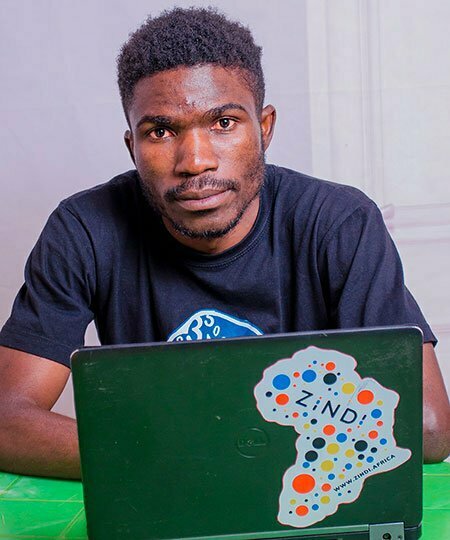
Samson Mhango excels in a Data Analytics contest
- Post by: ICT
- June 19, 2022
- Comments off
Samson Banankhu Mhango, who is a Bachelor of Science (Data Science) student Level 2, was among the top three candidates who competed in the Data Analytics 1.0 Web- Scraping Challenge organised by Malawi University of Business and Applied Sciences (MUBAS) on 23 rd April, 2022.
The competition, organised by the University’s Department of Computing and Information Technology attracted 60 participants, but only 22 qualified to attend the network summit and present their work. Banankhu said he was excited to be in the top three considering that a lot of participants from different backgrounds entered the competition. “The competition was dominated by graduates and final year students from different universities while others who participated are studying for a Master’s Degree. I wasn’t fazed by the profiles of the participants, I realised that what I had learnt in
Level 1 was so rich to enable me to compete and showcase what I know. I kept on working hard, Google kept on blocking me after detecting my code as a robot but I still I found a way to trick it until I scraped my desired data,” he said.
But what did Banankhu do to be recognised for his work?
“I used requests, BeautifulSoup and regex Python libraries as my scraping tools. As a first level student at the time, it was hard for me to use APIs like my friends did, so instead I had to write my code that did everything for me. I scraped articles about agriculture, published by Lilongwe University of Agriculture and Natural Resources from 2010 to present,” he said.
He said from a young age, he was inspired by people working in ICT.
“When I had the opportunity to enroll for my studies at Mzuzu University in 2021, I chose Data Science. I always aspired to be a data scientist, I am slowly becoming what I wanted to be and I am glad that what I have learnt so far has met my expectations,” he said.
MUBAS made a call for entries on April 8, 2022 focussing on web-scraping as a method of data mining. The competition was inspired by numerous amounts of data in the internet which remains unstructured. “What all the contestants agreed was that if such data was properly managed, it could be mined, cleaned and then stored for re-use,” he said. Among the competitors, the task involved writing a code to collect data from the web by scraping particular sites, then organising this data and extracting some useful
information. The participants were also required to create a dataset of all academic articles published in various journals and series which are available online from January 2010 to date. The articles were about Malawi for instance health and education, and articles published by academics from Malawi. The competition criteria focussed on logical workflow and processes of data collection; clear explanation and documentation of the methods applied; clean submission of the dataset containing the text that is well prepared, free from non-text and code symbols, and the analytics to be insightful and clear.
The top 3 deserving solutions were given a prize of K100,000 each and a data analytics certificate and the winners will work as interns on the ongoing research projects in the Department of CIT at MUBAS.
